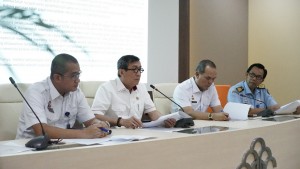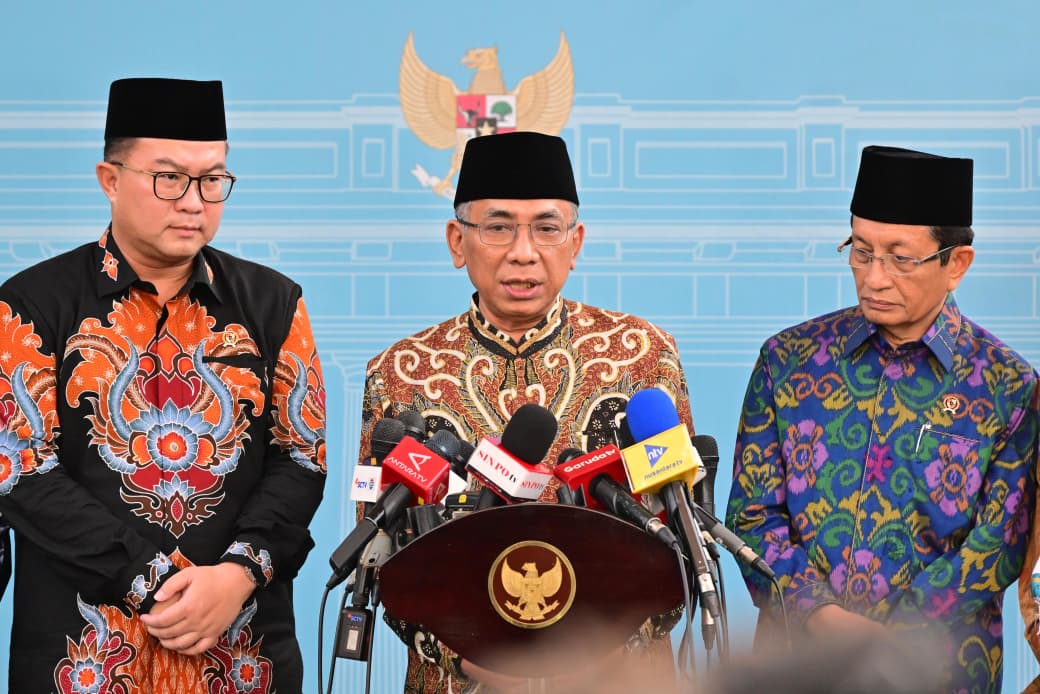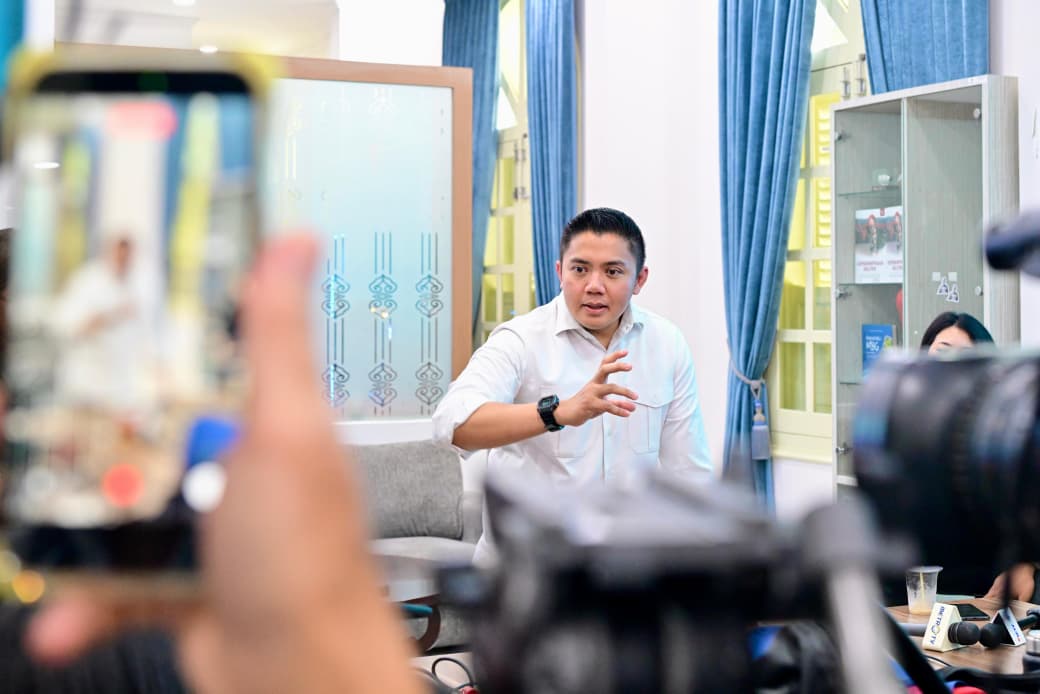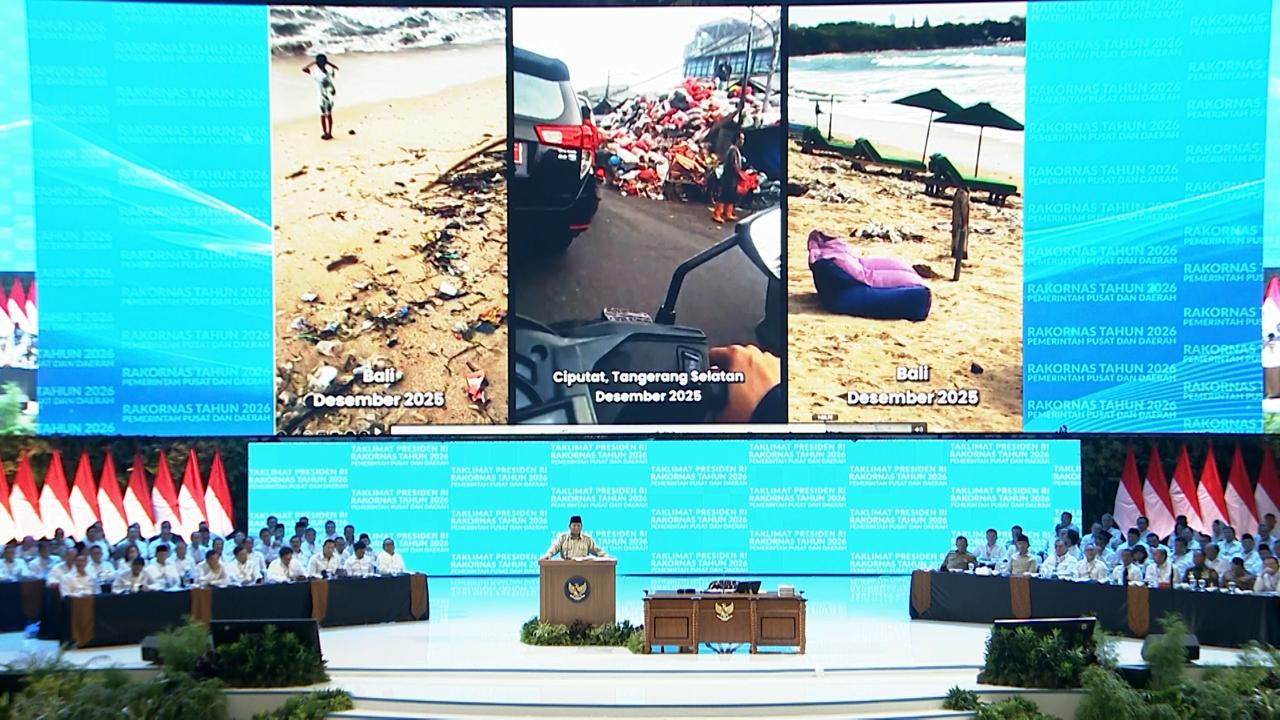Indonesia Wins Legal Dispute at ICSID International Arbitration

Minister of Law and Human Rights Yasonna Laoly delivers his remarks during a press release. Photo by: Ministry of Law and Human Rights
The Indonesian Government on 18 March 2019 won a lawsuit against Churchill Mining Plc and Planet Mining Pty Ltd. in the International Center for Settlement of Investment Disputes (ICSID) arbitration forum in Washington D.C., the US.
In a final and legally binding rule, ICSID Committees panel of judges -Dominique Hascher, Karl-Heinz Böckstiegel and Jean Kalicki- has rejected all annulment of the awards proposed by the plaintiffs and granted the Indonesian Government US$9.4 Million award on costs.
The lawsuit began when the plaintiffs accused the Government of Indonesia, in this case Regent of East Kutai, of violating a bilateral investment agreement between Indonesia and the United Kingdom and between Indonesia and Australia.
The plaintiffs claimed that Indonesia has conducted an indirect expropriation and has violated principle of fair and equitable treatment by annulling Mining License/Exploitation Mining Licenses previously granted to Ridlatama Group (subsidiary companies of the plaintiffs).
The plaintiffs also claimed that the violation has caused losses to their investment in Indonesia and filed a claim of US$1.3 billion (approximately Rp.18 trillion).
During the trial, the Indonesian Government was successful in proving that 34 documents submitted by the plaintiffs (including mining permits for the general survey and exploration stages) are false documents.
The ICSID panel agreed with the Indonesian Government’s argument that “investments that violate the law do not deserve protection in international law” and also found that “the plaintiffs did not meet their obligation to oversee their local partners and oversee licensing process.”
For the record, on 6 December 2016 ICSID panel rejected all claims submitted by the plaintiffs. On 31 March 2017, the plaintiffs requested an annulment of the award, citing Article 52 of Convention on the Settlement of Investment Disputes between States and Nationals of Other States (ICSID Convention) as its legal base. The plaintiffss arguments are as follows:
- ICSID panel has exceeded its authority (ultra vires);
- There has been a serious violation of basic procedure rules;
- The panels rule has failed to state the reasons on which the decision was based.
In addition to filing an annulment of previous ICSID rules, the plaintiffs also requested the temporary suspension of the implementation of the rules. Responding to the appeal, the Government of Indonesia requested a proper and executable guarantee and rejected the guarantee proposed by the plaintiffs.
The Indonesian government also requested the ICSID panel to carefully review the form and value of the guarantees offered, including by inviting an agrarian lawyer from Indonesia as an expert witness and asking the ICSID panel to cancel the temporary suspension of the implementation of the previous ICSID rules.
Eventually after a long trial process, the ICSID panel on 18 March 2019 rejected the lawsuit proposed by plaintiffs. It should be underlined that the legal victory is a remarkable achievement for the Government of Indonesia and has resulted in several consequences:
- Indonesia is not obliged to pay US$1.3 billion (approximately Rp.18 trillion) claim.
- The plaintiff must pay US$9.4 Million award on costs, the largest amount Indonesia has ever got in CSID court.
- It is the first Indonesia Governments legal victory at the ICSID Court.
- The legal victory shows that the Indonesian State Administrative Court has provided a fair trial, since the plaintiffs have filed lawsuit in the Indonesian court before filing a lawsuit at the ICSID.
- The legal victory shows that the Indonesian Government has provided a fair and equal treatment for foreign investors.
- The legal victory shows that the Indonesian Government has sovereignty in managing its mining sector.
During the past six years, the Indonesian Government has also consistently rejected all approaches from the plaintiff to make the settlement. The ICSID rule reaffirms the fact that the Indonesian Government does not commit any violation.
Translated by: Ridwan Ibadurrohman
Edited by: Ersan Pamungkas








